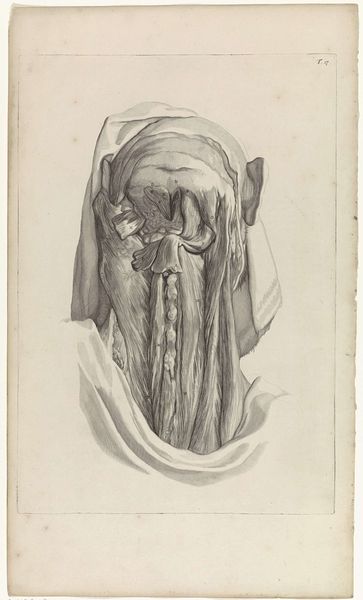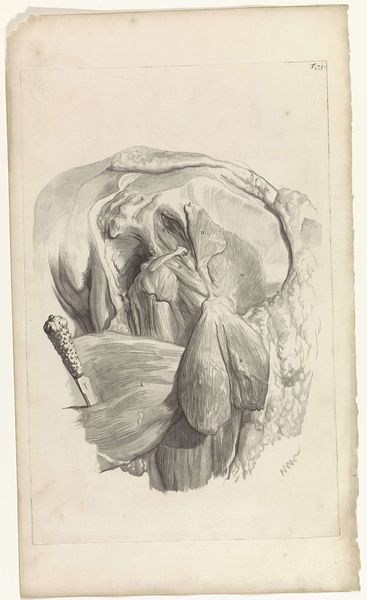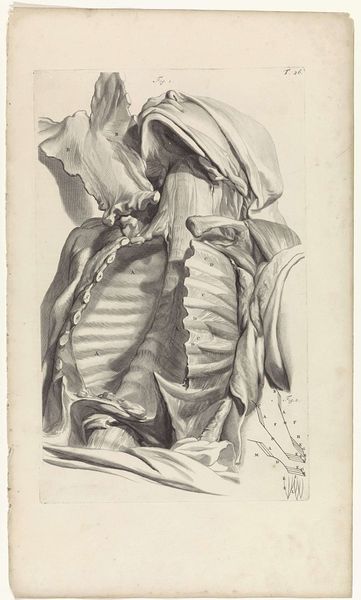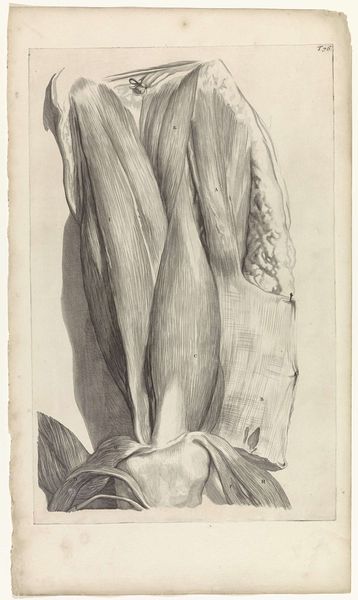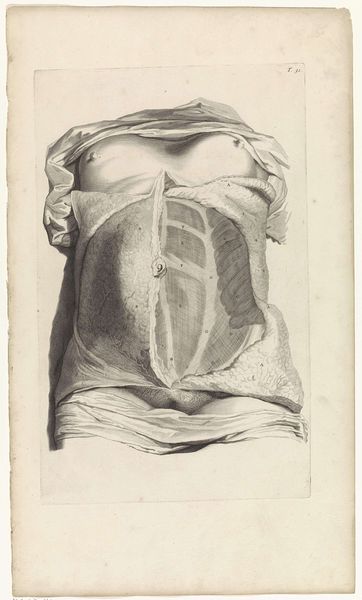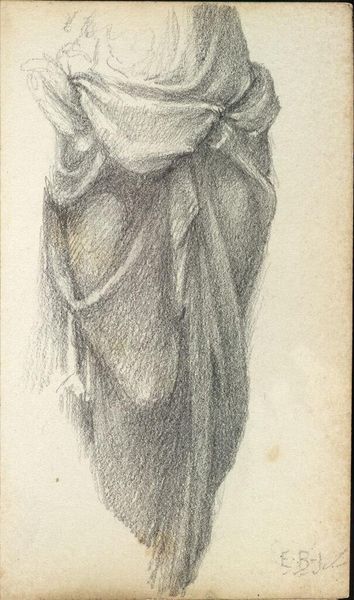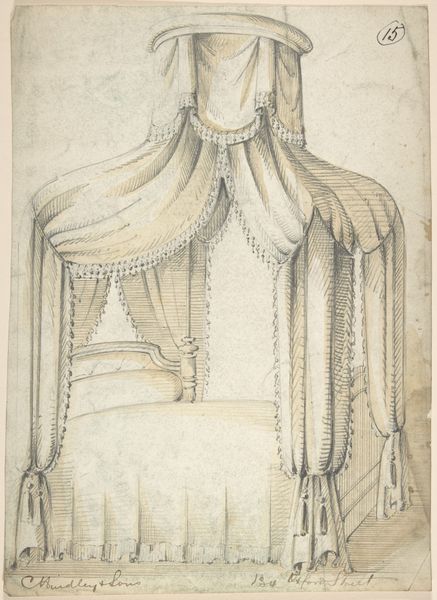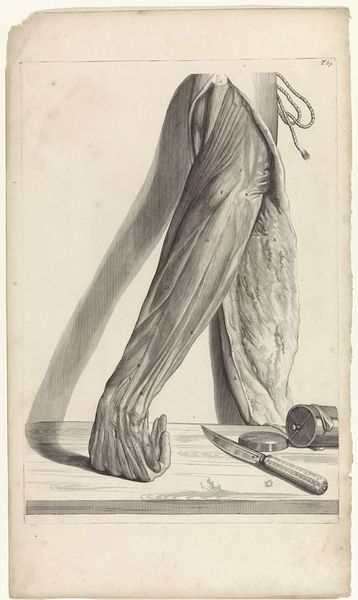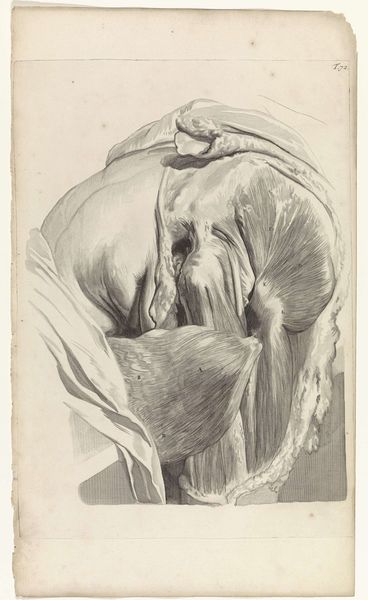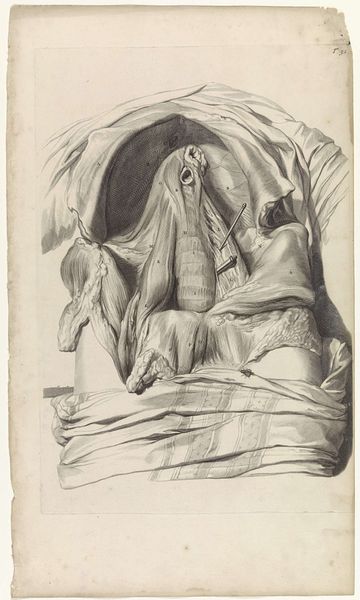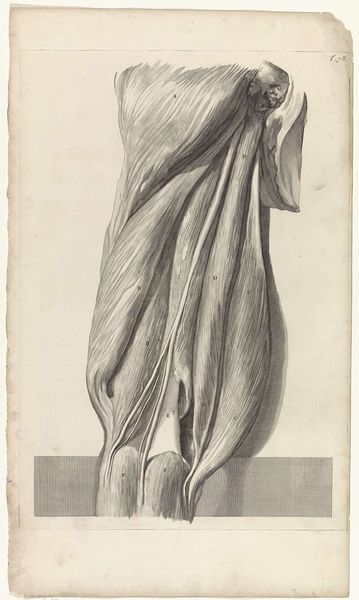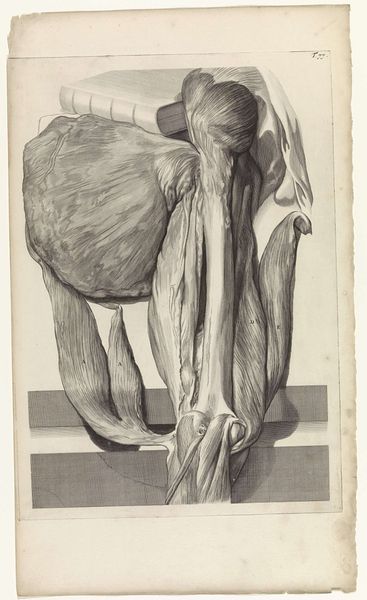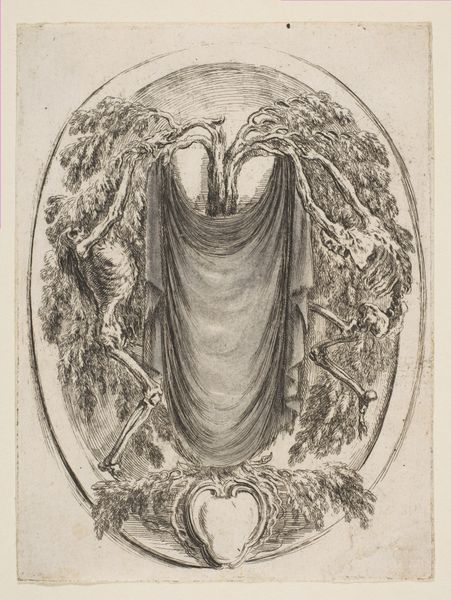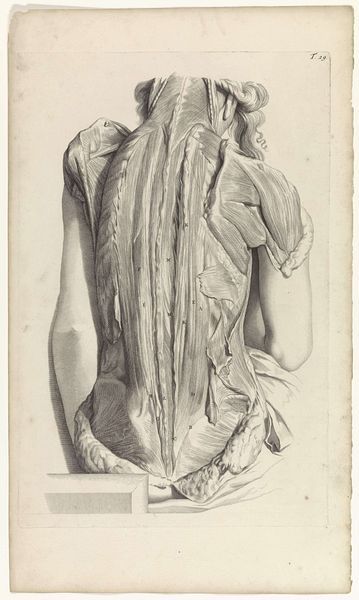
drawing, paper, ink, pencil
#
drawing
#
toned paper
#
light pencil work
#
baroque
#
pen sketch
#
pencil sketch
#
figuration
#
paper
#
personal sketchbook
#
ink
#
pencil drawing
#
ink drawing experimentation
#
pen-ink sketch
#
pencil
#
sketchbook drawing
#
pencil work
#
history-painting
#
academic-art
Dimensions: width 323 mm, height 465 mm
Copyright: Rijks Museum: Open Domain
Pieter van Gunst made this anatomical study of the inside of a head in the Netherlands, sometime between 1659 and 1724. Its stark realism is hard to look at. But it is a document of the scientific rationalism that was sweeping through Europe. The image creates meaning through its graphic detail. Van Gunst’s skill as an engraver conveys a sense of objective truth. This print reflects a culture of anatomical investigation that was emerging at the time. Public dissections were becoming more common, and medical schools were starting to use anatomical illustrations as teaching tools. The image may be shocking to modern eyes, but at the time it represented a progressive effort to understand the human body through empirical observation. Anatomical studies like this one rely on both artistic and scientific traditions and we need to understand the history of both to properly understand the image.
Comments
No comments
Be the first to comment and join the conversation on the ultimate creative platform.
